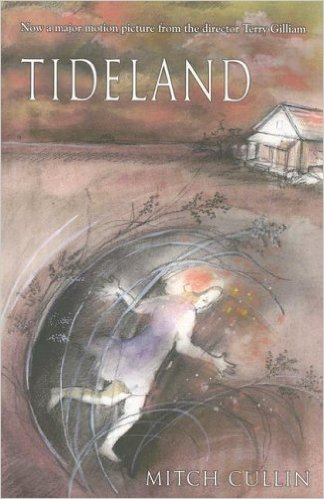
Content Warnings: This novel discusses child neglect, abuse, and drug addiction.
I really, really mean that content warning list, by the way. This is not for everyone.
Even people like myself, who are used to disturbing content in novels may be unsettled by this one. Why is it disturbing? Its because its told from the point of view of a child. Its disturbing because its told from an innocent.
Jeliza-Rose is 11. Her mother has just passed away from drug addiction. Fleeing LA, she and her washed up rockstar father travel to Texas to a rickety new home. With her father on permanent “vacation” (read: on drugs) Jeliza-Rose finds she has to amuse herself. With her three Barbie doll heads as friends, Jeliza-Rose slips further into her imagination.
I did like the characterisation of Jeliza-Rose and her world in general. I also liked the personification of her doll head friends, particularly her personal favourite, Classique. Cullin’s writing perfectly captures a child’s overactive imagination and here uses it as a contrast to the depressing adult world. Yet at the same time, the line remains clear that the conversations and explorations Jeliza-Rose makes are often imaginary. It’s a reconstruction of the down the rabbit hole trope. Jeliza-Rose goes nowhere, but instead uses her imagination as a distraction.
For us Carrollians, Alice herself is referenced multiple times- Alice’s adventures in Wonderland is Jeliza-Rose’s favourite book, and at one point she tries to pretend that she is Alice falling down the rabbit hole, another time she imagines she is opening the door to the Queen of Hearts’s garden- which turns out to be a shaft into the house attic surrounded by fibreglass.
After a time, it becomes clear that Jeliza-Rose’s imaginings are the only thing that is shielding her from a hideous reality. Downstairs, whilst her father stares limply at a map, completely out of his head, Jeliza-Rose plays pretend and thinks about the past. The contrast is played up for all the disturbing narrative you can find. Exploring outside, she comes across two equally unusual neighbours, decrepit Dell and childlike Dickens. Weird neighbour Dell, who is terrified of bees and mistakes Jeliza for a thief, particularly brings to mind Carroll’s savage duchess.
Would I recommend this book? Yes, but only if you can handle it. It’s a hard, often harrowing read, but one which is necessary if you wish to explore an inversion of the Alice trope.